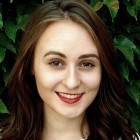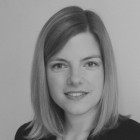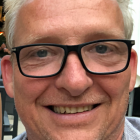Panel Presentation CNT114
On the Future of Open Educational Resources - Advocacy and Implementation
Date Thursday, Nov 28 Time – Room: Lincke
OER and open educational practice and culture are emphasised as catalysts to reach the SDG 4 goal on access, equity, equality, inclusiveness, quality, and lifelong learning. This panel will share best practice and stimulate discussions on how to scale up the implementation process of OER via awareness, capacity building, and assessment of outcomes.

Nina Brandner
Advisor, Deutsche Gesellschaft für Internationale Zusammenarbeit (GIZ) GmbH, Germany
Nina Brandner is a young development professional. She first became engaged in the e-learning sector as social entrepreneur managing the international social start-up GlobalMatch. Since June, Nina is part of the newly founded Africa Cloud project at the Deutsche Gesellschaft für Internationale Zusammenarbeit (GIZ) GmbH. Owing to her experience in content development, learner support and interface design, Ms. Brandner’s current fields of responsibility include content management, quality assurance and user management. Ms. Brandner holds a Master of Science degree in Development Management from the London School of Economics and Political Science (LSE) as well as a Bachelor of Arts in Liberal Arts and Sciences from the Maastricht University.

Renata Suter
Kiron Open Higher Education gGmbH, Germany
Dr. Renata Suter is Chief Education Officer of Kiron Open Higher Education, an EdTech organization that provides free learning opportunities for refugees worldwide and underserved communities in the Middle East. At Kiron, she leads the technology and content development of the learning platform. Renata holds a master's degree in psychology from the University of Basel and a doctorate in decision sciences.
Links
Moderator

Paul Hearn
Knowledge and Change Management, European Commission, Belgium
Paul is a Senior Expert in Knowledge Management at the EU Joint Research Centre (JRC), the European Commission's in-house science service. In recent years, the organisation has undertaken a major strategic shift towards a flatter, more collaborative working style focused on delivering scientific knowledge and learning - in the form it is needed and at the time it is needed - to European policy makers. A 20 year veteran of the European institutions, Paul is known as an internal innovator, and has several internal innovation prizes in his collection. Recently, Paul has turned his attention to bringing together the disparate classroom-based, specialised learning activities which take place across the EU institutions into a coherent, strategic and modern resource for the stakeholders of the institutions and which will be delivered through a new Commission portal known as the EU Academy (online mid next year). Paul's work in knowledge management is recognised globally and he has been a frequent conference speaker on this subject, and a champion of people- and community-centred approaches to organising and sharing knowledge and learning in large organisations. In former instantiations of his professional life he has worked on advanced multidisciplinary technology projects alongside philosophers, computer scientists, neuroscientists, physicists, biologists, medical practitioners and others, including a number of Nobel prize winning scientists. Before joining the Commission, Paul was an entrepreneur and helped to launch a number of start-up companies, some of which went on to greater things in what was then the nascent computing and internet sector.
Paul has a multidisciplinary academic background, with a degree in Modern Languages and Linguistics, and postgraduate Master's Degrees in Cognitive Science, and Economic and Business Administration. Educated in the UK and Spain, he is a speaker of four European languages, which he thought was enough until his daughter grew up to casually and almost effortlessly beat him (she is currently learning 6 languages).